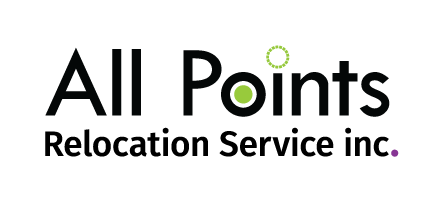Regardless of the reason, it is important to know that relocation is one of the most stressful times for your employee and their family (it often ranks in the top 3 stressors in life).
While employee retention is always a top goal of a company it is even more important (and harder – especially for those returning from assignments) when it comes to relocated employees. Why? Because while the cost of replacing an employee is generally known by HR (there are a lot of published studies on this), the retention of a relocated employee includes the cost of the relocation itself.
Average relocation costs range wildly, but there is little question that, after recruitment costs (either internal searches or external), or all the internal time spent considering the candidate and preparing the candidate for relocation, the cost of relocation is high. After all, it is not something that is taken up lightly, by either employee or employer. We can honestly say that relocations can average $10,000 for a Gen-Z renter to $100,000+ for a senior level employee, and that does not even consider the costs whilst on assignment, if there is an assignment
So how can you use your relocation program as a retention tool?
Make them remember the experience well.
Outsource the experience
This may seem self-serving, but HR is busy at its job, and is not expert in relocation. Let your transferees have a single point of contact that they can rely on, and that can be done with the assistance of a Relocation Management Company (RMC). They will appreciate that you invested in making their lives easier at a time of such stress.
Increase the flexibility of the relocation
Even Relocation Allowances / Lump Sums can have their flexibility increased. Your RMC can conduct a needs assessment, and small enhancements, which may not cost much, can be added to the allowance to show that the program was personalized. No matter where your program is at (lump sums, tiered, core-flex, etc.), it can get even more flexible by either adjusting the approach or adding in additional options for relocating employees to select. A great moment in relocation for the company and the employee is when the employee says, “That’s exactly what I wanted.” Any flexibility needs to be tempered with equity, so be careful to work with your RMC for typical flexible benefits that can ensure your program does not become the negative talk at the water cooler.
Enhance the experience on the basics of life: home and community
Finding a new community and home is just about the most important thing that a relocating employee will do. Don’t leave them on their own to navigate a new city after the relocation policy. Support them with Destination Services. The Destination Service Provider (DSP) will conduct a thorough needs assessment so that they understand what the employee, couple or family wants in a community and will be able to pick neighbourhoods that match, and then focus in on the best housing options. If the employee is disappointed in their new home and neighbourhood, they think of this as a failed relocation. Let them come to understand the best of what the destination city has to offer them.
(For Recruit Relocations) Bring your recruiters in
Tell the recruiters about the choices you have made with your relocation program and let them promote them. Also have your recruiter follow-up for valuable feedback, so that you can further enhance the experience for future recruits.
Here are some other tips:
- Provide Resources
- Understand the Relocation Policy
- Provide “Pre-Decision” Counseling (your DSP can have great online resources for recruits to get to know the new city from a distance)
- Provide “Up Front” Cost Estimates
- Set expectations
- Cover the basics (if they have household goods to move, this should be covered where possible)
You have your work cut out for you to make them remember this stressful experience as a great experience, but you can do it if you make the right choices and invest appropriately. The work will be rewarding, the company will offer the appropriate incentives and corporate culture, but the employee’s image of the company starts with the relocation. Offering the proper support and resources to an employee or recruit who has been asked to relocate will ultimately improve a company’s retention rate.

